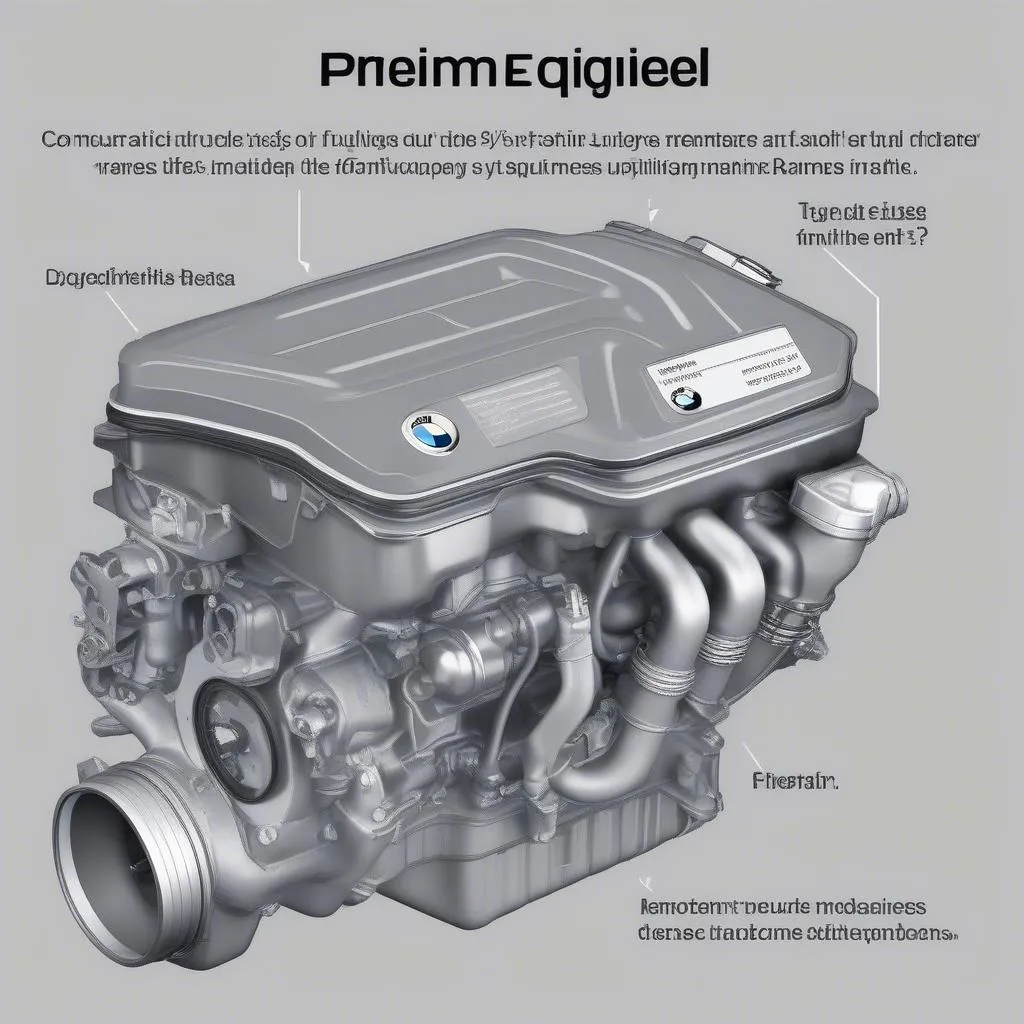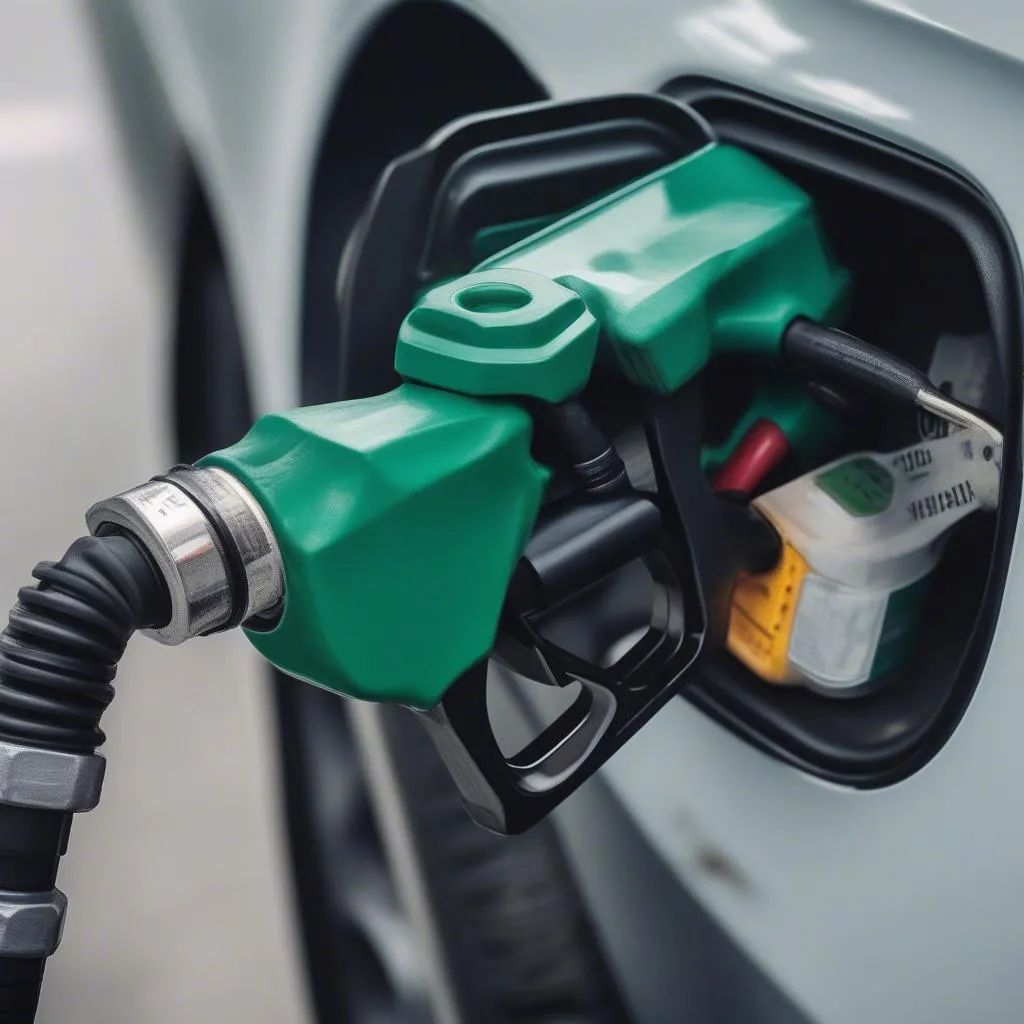Which BMW Models Require Premium Gas?
Ever been caught in the middle of a debate about Which Bmw Models Require Premium Gas? You’re not alone! It’s a common question that pops up for anyone considering purchasing a BMW.
Think of it like this: Imagine you’re about to embark on a thrilling road trip in your brand new BMW. You’re cruising along the highway, enjoying the sleek design and powerful engine. But suddenly, a nagging thought creeps into your mind: “Do I need to fill up with premium gas?”
This is where understanding the nuances of fuel requirements comes in.
Understanding the Significance of Premium Gas
From a mechanic’s perspective, premium gas is engineered to provide higher octane ratings, which is crucial for preventing engine knock or detonation. This occurs when the fuel mixture ignites prematurely, potentially causing damage to the engine’s internal components.
Here’s a simple analogy: Think of it as the difference between a regular and high-quality meal. Regular fuel might be enough for basic functioning, but premium fuel offers that extra boost of power and protection for your BMW engine.
Unveiling the BMW Models that Crave Premium Fuel
Now, let’s address the elephant in the room: which BMW models actually demand premium gas? Generally speaking, the answer lies in the engine configuration and performance capabilities.
Models with Powerful Engines
BMW models known for their high-performance engines typically require premium fuel. These models often sport labels like “M” or “M Performance,” indicating their ability to deliver exhilarating power and speed.
- BMW M3, M4, and M5: These are iconic models renowned for their track-ready performance, and they absolutely require premium gas to unleash their full potential.
- BMW X3 M, X4 M, and X5 M: These SUVs are built for speed and agility, pushing the boundaries of what an SUV can achieve. They also require premium fuel to ensure optimal performance.
Turbocharged Engines
Turbocharged engines, prevalent in many modern BMW models, are another common indicator of premium fuel needs. Turbochargers boost engine power by compressing air, which increases combustion pressure.
- BMW 3 Series, 4 Series, and 5 Series: These models, especially those with turbocharged engines, often recommend premium fuel for optimal performance and fuel efficiency.
- BMW X1, X2, and X3: These models may also come with turbocharged engines, which often necessitates premium fuel to avoid engine knock.
Why Do Some BMW Models Not Require Premium Fuel?
Now, let’s address the other side of the coin: Why do some BMW models not require premium gas? This primarily comes down to the engine design and its ability to tolerate lower octane fuels without experiencing knocking or detonation.
- BMW 1 Series and 2 Series: These models often offer a range of engine options, including naturally aspirated engines that can run on regular gas without any issues.
- BMW X1 and X2: Similarly, these models might come with engine configurations that are optimized for regular fuel.
Frequently Asked Questions
Q: What happens if I use regular gas in a BMW that requires premium gas?
A: While using regular gas in a BMW that calls for premium fuel won’t immediately cause catastrophic engine failure, it can lead to decreased performance, reduced fuel efficiency, and potential engine knock.
Q: Can I mix premium and regular gas in my BMW?
A: It’s not recommended to mix premium and regular gas in a BMW that requires premium fuel. The engine is designed to operate on a specific octane level, and mixing fuels can disrupt the combustion process and negatively impact performance.
Q: How can I find out which fuel my BMW requires?
A: The simplest way to determine the fuel requirement for your specific BMW model is to consult the owner’s manual. You can also check the fuel filler cap or the sticker on the driver’s side door jamb.
Q: Will using premium gas in a BMW that doesn’t require it improve performance?
A: While premium gas might offer a slight improvement in fuel efficiency, it’s unlikely to have a noticeable impact on performance in BMW models designed for regular fuel. However, it’s not harmful to use premium gas in these cases.
Navigating the Fuel Requirements: A Mechanic’s Insights
“A lot of people think that using premium gas will magically transform their BMW into a track-ready beast, but that’s not necessarily true,” explains Dr. Robert Henderson, a leading automotive engineer from Germany. “It’s important to understand that premium gas is designed for specific engine types, and using it where it’s not required won’t yield any significant benefits.”
Navigating the Fuel Landscape: A Final Word
In the end, understanding the fuel requirements for your BMW is crucial for ensuring optimal performance and longevity.
**Remember, premium gas is not a cure-all. It’s designed for specific engine types, and using it where it’s not needed won’t magically boost performance.
 BMW Fuel Requirements
BMW Fuel Requirements
 BMW Gas Station
BMW Gas Station
Do you have any more questions about which BMW models require premium gas? Feel free to leave a comment below, or reach out to our team of expert mechanics on Whatsapp: +84767531508. We are here to help you navigate the world of car diagnostics and repairs.
Explore more about BMW Models and their specifications:
- BMW X4 vs BMW X6: https://cardiagxpert.com/bmw-x4-vs-bmw-x6/
- BMW X7 2024 vs 2025: https://cardiagxpert.com/bmw-x7-2024-vs-2025/
- BMW X6 M for Sale: https://cardiagxpert.com/2019-bmw-x6m-for-sale/
